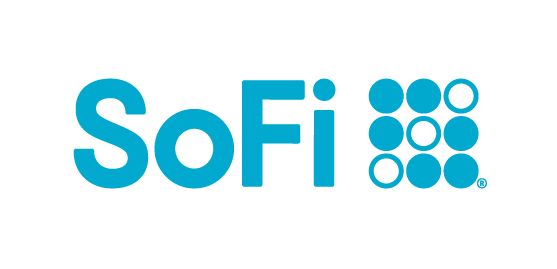Your credit score is one of the factors that matters most during a loan application. If you plan to apply for a loan and your credit score is below 650, you might wonder whether you can get approved.
In this guide, we'll cover how a low credit score affects your chances of getting a loan. You'll also learn how to get the best loans for any credit score, and ways to make approval more likely.
Can you get a loan if your credit score is below 650?
You can get a personal loan with a credit score below 650. In general, the credit score you need for a personal loan is 550 or higher. This does depend on the lender, as each has its own minimum requirements. Also keep in mind that lenders tend to offer smaller loan amounts and charge higher interest rates to borrowers with lower credit scores.
How to get a loan with a credit score below 650
Here's the process to get a personal loan with a credit score below 650:
- Check your credit score.
- Look for lenders with a minimum credit score you can meet.
- Compare loan rates among the lenders you find.
To start, find out your credit score. Specifically, look up your FICO® Score, the one that's most widely used by lenders. There are multiple free credit score tools that provide your FICO® Score, including:
- Experian CreditWorks℠ Basic
- Discover® Credit Scorecard (only available to Discover® Card holders)
The next step is finding potential lenders that fit your credit score. A good place to start is the best personal loans for fair credit. Fair credit includes scores from 580 to 669 under the FICO® Score system. If your score is near the low end or below that range, look at personal loans for bad credit.
Once you have the lenders, it's time to go rate shopping. Most lenders have a prequalification option on their websites. After you enter some basic information, the lender runs a soft credit check on you, which doesn't affect your credit score. It then shows you the loan amount and interest rate that you're prequalified for.
Use the loan amounts and interest rates offered to choose a lender. After you've picked one, apply for your loan.
Compare the best personal loans
Get the best rates and terms to fit your needs. Here are a few loans we'd like to highlight, including our award winners.
| Lender | APR Range | Loan Amount | Min. Credit Score | Next Steps |
|---|---|---|---|---|

Rating image, 5.0 out of 5 stars.
5.0/5
Our ratings are based on a 5 star scale.
5 stars equals Best.
4 stars equals Excellent.
3 stars equals Good.
2 stars equals Fair.
1 star equals Poor.
We want your money to work harder for you. Which is why our ratings are biased toward offers that deliver versatility while cutting out-of-pocket costs.
|
Fixed: 8.99%-29.99% APR (with all discounts)
|
$5,000 - $100,000
|
680
|
|

Apply Now for Discover Personal Loan
Powered by Credible
Rating image, 5.0 out of 5 stars.
5.0/5
Our ratings are based on a 5 star scale.
5 stars equals Best.
4 stars equals Excellent.
3 stars equals Good.
2 stars equals Fair.
1 star equals Poor.
We want your money to work harder for you. Which is why our ratings are biased toward offers that deliver versatility while cutting out-of-pocket costs.
|
7.99% - 24.99%
|
$2,500 - $40,000
|
660
|
Apply Now for Discover Personal Loan
Powered by Credible |

Rating image, 4.0 out of 5 stars.
4.0/5
Our ratings are based on a 5 star scale.
5 stars equals Best.
4 stars equals Excellent.
3 stars equals Good.
2 stars equals Fair.
1 star equals Poor.
We want your money to work harder for you. Which is why our ratings are biased toward offers that deliver versatility while cutting out-of-pocket costs.
|
7.80% - 35.99%
|
$1,000 - $50,000
|
300
|
Other ways to get a loan with a low credit score
There are some alternative loan options that may work better depending on your situation.
Get a cosigner
Some lenders let you apply for personal loans with a cosigner. A cosigner is another person who agrees to be responsible for your loan.
If you know anyone with a higher credit score than yours who is willing to cosign on your loan, this could help you get better loan terms. The lender uses the cosigner's credit to determine the interest rate and amount it can offer.
Check with your bank or credit union
If you have a relationship with a bank or credit union, it may be willing to issue you a personal loan with no credit or a low credit score.
Your regular bank or credit union has a better idea of your financial situation than a lender you've never used before does. If a loan officer sees that you have regular income and that you manage your money well, that could be your ticket to your loan.
Provide collateral for a secured loan
Personal loans are usually unsecured loans, meaning there's nothing for the lender to repossess if the borrower defaults. But it's possible to get a personal loan with collateral. This can make it easier to get approved.
When you provide collateral for your loan, it's a secured loan. Most items of value that can be professionally appraised are an option to use as collateral. Common collateral choices include:
- Vehicles
- Real estate
- Jewelry
- Bank accounts
- Investment accounts
Saving money on your loan
A good rule to follow with personal loans is to not borrow more than necessary. This is even more important when you have a low credit score because of the higher interest rates. Figure out how much money you need first. And then only borrow that amount, even if the lender offers you more.
Your loan's term is also important. A longer loan term means lower monthly payments, but also results in more interest charges. Pick the shortest term that works for you, so you can minimize interest without having trouble making your payments.
If you pick the lowest loan amount and the shortest term you can manage, your loan won't be more expensive than necessary. It may cost you interest, but you'll have the money you need, and it can even help your credit improve as you pay back the loan.
FAQs
-
Lenders look at much more than just your credit score when determining creditworthiness, but they do generally require that your FICO® Score be at least 550. Many will prefer a score of at least 580 for lending though.
-
When determining how much money to lend, a bank generally looks at a lot more than your credit score. For example, it will also want to know how much money you make and how much of that is spent on bills and other expenses. Your loan amount will be based on how much you can repay, but your interest rate is generally based on your credit score, so it definitely influences the calculation.
-
You should be able to qualify for many unsecured personal loans with a credit score under 650, though the interest rates may be quite high. You can possibly lower those rates by offering collateral, depending on the source of your loan.
We're firm believers in the Golden Rule, which is why editorial opinions are ours alone and have not been previously reviewed, approved, or endorsed by included advertisers. Motley Fool Money does not cover all offers on the market. Motley Fool Money is 100% owned and operated by The Motley Fool. Our knowledgeable team of personal finance editors and analysts are employed by The Motley Fool and held to the same set of publishing standards and editorial integrity while maintaining professional separation from the analysts and editors on other Motley Fool brands.
We're firm believers in the Golden Rule, which is why editorial opinions are ours alone and have not been previously reviewed, approved, or endorsed by included advertisers. Motley Fool Money does not cover all offers on the market. Motley Fool Money is 100% owned and operated by The Motley Fool. Our knowledgeable team of personal finance editors and analysts are employed by The Motley Fool and held to the same set of publishing standards and editorial integrity while maintaining professional separation from the analysts and editors on other Motley Fool brands.
*Upstart Loan Disclaimer
The full range of available rates varies by state. The average 3-year loan offered across all lenders using the Upstart platform will have an APR of 21.97% and 36 monthly payments of $35 per $1,000 borrowed. For example, the total cost of a $10,000 loan would be $12,646 including a $626 origination fee. APR is calculated based on 3-year rates offered in the last 1 month. There is no down payment and no prepayment penalty. Your APR will be determined based on your credit, income, and certain other information provided in your loan application.
*SoFi Personal Loan Disclaimer
Fixed rates from 8.99% APR to 29.99% APR. APR reflects the 0.25% autopay discount and a 0.25% direct deposit discount.
SoFi Platform personal loans are made either by SoFi Bank, N.A. or , Cross River Bank, a New Jersey State Chartered Commercial Bank, Member FDIC, Equal Housing Lender. SoFi may receive compensation if you take out a loan originated by Cross River Bank. These rate ranges are current as of 3/06/24 and are subject to change without notice.Not all rates and amounts available in all states. See SoFi Personal Loan eligibility details at https://www.sofi.com/eligibility-criteria/#eligibility-personal. Not all applicants qualify for the lowest rate. Lowest rates reserved for the most creditworthy borrowers. Your actual ratewill be within the range of rates listed above and will depend on a variety of factors, including evaluation of your credit worthiness, income, and other factors.
Loan amounts range from $5,000–$100,000. The APR is the cost of credit as a yearly rate and reflects both your interest rate and an origination fee of 9.99% of your loan amount for Cross River Bank originated loans which will be deducted from any loan proceeds you receive and for SoFi Bank originated loans have an origination fee of 0%-7%, will be deducted from any loan proceeds you receive.
Autopay: The SoFi 0.25% autopay interest rate reduction requires you to agree to make monthly principal and interest payments by an automatic monthly deduction from a savings or checking account. The benefit will discontinue and be lost for periods in which you do not pay by automatic deduction from a savings or checking account. Autopay is not required to receive a loan from SoFi.
Direct Deposit Discount: To be eligible to potentially receive an additional (0.25%) interest rate reduction for setting up direct deposit with a SoFi Checking and Savings account offered by SoFi Bank, N.A. or eligible cash management account offered by SoFi Securities, LLC (“Direct Deposit Account”), you must have an open Direct Deposit Account within 30 days of the funding of your Loan. Once eligible, you will receive this discount during periods in which you have enabled payroll direct deposits of at least $1,000/month to a Direct Deposit Account in accordance with SoFi’s reasonable procedures and requirements to be determined at SoFi’s sole discretion. This discount will be lost during periods in which SoFi determines you have turned off direct deposits to your Direct Deposit Account. You are not required to enroll in direct deposits to receive a Loan.
Impact to credit score: To check the rates and terms you may qualify for, SoFi conducts a soft credit pull that will not affect your credit score. However, if you choose a product and continue your application, we will request your full credit report from one or more consumer reporting agencies, which is considered a hard credit pull and may affect your credit.